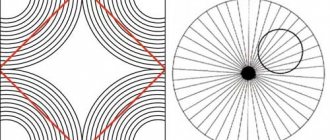In almost any company, especially in women's A Review of the Barnum Effect, you can discuss how Libra is sociable and how Virgo is pedantic, and not receive serious criticism. Many educated people will attack you for mentioning homeopathy, but will not hesitate to name their zodiac sign.
Why is this classification so easy to accept despite the lack of scientific evidence? Say thank you to the Barnum (Forer) effect. Below we will look at how it helps us believe in any unproven classifications, fortune telling and predictions.
Forer's experiment
Back in 1948, psychologist Bertram Forer conducted a simple experiment. He gave his students a supposedly special test, the results of which would tell about their personality. Instead of a real psychological test, he gave everyone the same vague text taken from a horoscope. After reading it, he asked each student to rate the text based on their opinion of themselves on a five-point scale—the average rating was 4.26. This experiment was then carried out hundreds of times by other psychologists and gave approximately the same results.
During the experiment, Forer said that the student is disciplined and confident in appearance, can sometimes be an introvert, sometimes an extrovert, thinks independently, prefers variety, and sometimes feels insecure. The options may vary, but the essence remains the same.
In 1948, professor-psychologist Bertram Forer conducted an interesting psychological experiment.
He gave his students a special test to use the results to analyze their personalities.
The twist of the experiment was that the professor didn't actually intend to do any analysis. Instead of a real analysis, the professor gave all the students the same text, which was taken from a regular horoscope. The text was something like this:
“You need people to love you and admire you. You are quite self-critical, you have many hidden opportunities that you have never used to your advantage. Although you have some personal weaknesses. You are disciplined and seemingly confident, but in reality you tend to worry and feel insecure. Often you are overcome by serious doubts about the correctness of the decision made, whether you did the right thing. You give preference to some variety; restrictions cause you indignation. You also pride yourself on being an independent thinker; you do not agree with others' opinions without sufficient evidence. Sometimes you are affable and friendly, and sometimes you are cautious and reserved. Some of your aspirations are quite unrealistic. One of the main goals is stability.”
Then he asked each student to rate the correspondence of the description of their personality to reality on a five-point scale. The average score was 4.26 points. Subsequently, the experiment was repeated hundreds of times with the same result. Thus, Bertram Forer proved that it is not at all necessary to have any knowledge in order to guess a person’s character, the main thing is to say that the forecast was prepared personally for him, add authority by saying that it was prepared by scientists - psychologists, and fill it with phrases that suit to almost everyone. They must be positive, without negativity and specifics.
This is enough for people to believe the psychologist, the astrologer, the character description, and the forecast for tomorrow.
Barnum effect
Despite the existence of the official author of the experiment, the effect itself is named after the American showman Phineas Barnum, known for his psychological manipulation.
The Barnum effect is the tendency for people to perceive as reliable personality descriptions that they believe were written exclusively for them, but in fact are vague and quite generalized.
The occurrence of this effect can be explained by the interest of each person in his own personality.
Conditions necessary for the Barnum effect to occur:
- The description should contain vague, abstract language.
- The description contains personality traits that suit most people.
- A person should consider this description to have been obtained from an authoritative source.
- The description should characterize the person in a positive way.
Examples from life
The Barnum effect can be used for various purposes. He is often approached by charlatans - fortune tellers, palmists, healers, astrologers, mediums, and psychics. Such individuals seek to benefit from influencing gullible people who require psychological support. As a rule, these individuals do not have any extraordinary abilities and earn their living through fraudulent activities. The Barnum-Forer effect is also used in advertising by marketers who want to increase sales or sell unclaimed products.
The phenomenon should not be viewed only in a negative light, since it can also bring positive results. An example of its benefits is the regular use of positive, life-affirming affirmations. Such statements, perceived as truthful and optimistic, increase a person’s self-confidence and eliminate the need for outside help and support. They allow you to achieve inner harmony and relaxation, improve self-esteem, get rid of psychological complexes, and help improve personality traits.
What kind of people are prone to such trust?
It should be said that people's behavior during this experiment is influenced by so-called psychological artifacts. Artifacts are the result that arises in a psychological experiment as a result of the unplanned behavior of the experimented person, that is, when the researcher himself cannot predict all the factors that will influence the result.
For example, “helpful” people try in every possible way to please the experimenter, “cautious” people want to present themselves in the best light and avoid mistakes in every possible way, “selfish” people are simply trying to increase their self-esteem, “suspicious” people hide their true reactions, and “transparent” people are ideal for experiments. - they are ready to cooperate and show their true reactions and emotions.
Therefore, people who are not very happy, who are worried and irritated about something, overcome with anxiety, who want to get rid of depressing experiences and uncertainty, people who are looking for any support, are more likely to perceive this lengthy description as reliable. That is, a person must be mentally prepared in order to perceive such a positive and extensive description, because it helps him and gives him hope. By the way, such gullibility is equally inherent in both women and men.
Forer himself explained his effect by ordinary human gullibility, but even this explanation is quite vague. Vanity, thinking with desires and the desire to gain hope, the tendency to attach importance to everything that concerns the person himself - these are just some of the factors that influence the trust of the subject. The fact is that a person is inclined to trust even false statements if he considers them sufficiently acceptable or positive for us. Moreover, such descriptions trigger flights of fancy and we tend to interpret them as we wish. In some cases, you can even dilute positive descriptions with negative ones - it is quite possible that the person himself will filter out the negativity and focus only on the positive description of his personality.
Why do we trust psychics and coffee grounds?
When evaluating predictions, we use the same method as when reading our characteristics - subjective or personal validation The fallacy of personal validation; a classroom demonstration of gullibility. . If you believe that what is written or told applies to you, then you will instantly find matches. Psychics don’t even have to try very hard: the client himself “guesses” what they mean and happily reports it.
Here is an example from life. One of my friends is sure that she came across a real medium, because before looking into the future, he correctly described her past and named some facts from her biography. In particular, he talked about her mother’s illness, which he had no way of knowing about. When my friend talked about this, at first it looked as if the medium had named a specific disease. Later it turned out that he simply mentioned “female problems,” and they occur in many older women.
According to this principle, you can say anything and get to the point.
For example, if a fortune teller talks about a “strong father figure,” a person could equally well be thinking about his father, if he has one, or about another man who has influence in his life: a relative, a boss, a friend, a friendly neighbor, or anyone. !
This works not only with mediums, but also with independent fortune telling on everything. Not a single Tarot card, rune, or even coffee grounds will tell you about “promotion to general manager,” but about “an unexpected pleasant surprise,” yes. At the same time, a surprise could be a promotion, or an empty seat on a crowded bus, or a randomly dropped second Snickers from a food machine. You will discover this yourself and associate it with fortune telling. But what doesn’t coincide will simply be forgotten.
Areas of application of the Barnum effect
Many people are familiar with this effect and use it for their own purposes - often for their own profit (though not always). Compilers of astrological horoscopes, astrologers themselves, palmists, homeopaths, psychics, mediums, fortune tellers, mind readers, even marketers - all these people in one way or another use this effect for profit. Even if we assume that there are people with the gift of foresight, they are negligible compared to those who pretend to be so.
For example, so-called cold reading is simply a set of techniques that these people use to create the illusion that they know more about people than they actually do. But in this case, cold reading is a stronger technique than long description because it uses a person's physical characteristics to make assumptions. With cold reading, this is also all packaged in a foggy shell of descriptions and predictions, and since external factors are also taken into account, the effect is sometimes very strong.
Application in life
It is interesting that even people who do not know what the Barnum effect is use it in their activities. Most often these are “entrepreneurs” who make money from those who are worried about their own future. This effect is widely used by such figures as:
- astrologers, compilers of general and personal horoscopes;
- traditional healers and homeopaths;
- fortune tellers, psychics, mediums and palmists.
The listed businessmen usually quite sincerely portray their desire to help desperate people, but their services are very expensive for selfless help.
The Barnum effect is often used by marketers. For example, a shoe salesman may say the following during the fitting process: “I see that you like to dress stylishly. Try on these shoes - they’re just perfect for you!” A person hears a pleasant phrase addressed to him personally. At the same time, he considers the seller to be an expert who is well versed in fashion and style, so he agrees that the shoes offered suit him.
Often the Forer-Barnum effect becomes the cause of self-fulfilling prophecies (the Pygmalion effect). A person willingly believes in a prediction he likes and begins to act in such a way as to contribute to its fulfillment.
In some cases, the result can be considered quite positive. For example, a person takes a test and “finds out” that he is very strong-willed and purposeful. Having gladly agreed with this statement, he tries to correspond to the new image, thanks to which his character changes for the better. By the way, this can become a powerful tool for self-improvement, reminiscent in its principle of action of positive affirmations.
Can the Barnum effect be used for good purposes?
The Barnum effect smoothly follows the Rosenthal effect - a person’s tendency to behave according to prediction, description and prophecy. On the other hand, a person may feel different from who he really is, which will lead to a deterioration in his psychological state.
You should understand that many people take money from you or try to profit from their descriptions. In addition, after communicating with such people, you are left with an extremely unpleasant feeling, as if someone has crawled into your soul and trampled around there well.
The Barnum effect can be used for your own purposes (albeit in a modified form) in self-development. For example, affirmations are very good at helping you become more confident, calmer and more relaxed. Meditation does the same thing. There is no reason to listen to a stranger to increase self-esteem and list good qualities - you can achieve all this yourself.
If you have encountered this effect in your life, share your stories with us in the comments.
Bertram Forer portrait of a personality. Professor Bertram Forer and a nightclub graphologist
In the late 1940s, Professor Bertram Forer was hard at work developing new ways to determine the numerical characteristics of a person's personality. One evening, Forer went to a nightclub, where he was approached by a graphologist who asked him to characterize his personality based on his handwriting. Although Forer refused the offer, this chance meeting awakened in him a desire to find out why the personal characteristics compiled by astrologers and graphologists make such a strong impression on so many people. And he decided to conduct an unusual experiment. It is curious that it was this experiment that was destined to glorify the scientist, and not his main work dedicated to the human personality, which everyone conveniently forgot about over time.
In an introductory psychology class, Forer gave the entire student audience the task of completing a personality test, that is, answering certain questions related to their personality. A week later, he gave them sheets of paper with personal characteristics compiled from the results of these tests, and invited each student to carefully study their own characteristic, rating its accuracy from 0 (poor) to 5 (excellent), and then raise their hand if it completely adequately determined his personality.
Let's turn back the clock and try the experiment again. Here is one of the characteristics that were given to students during Forer's research. By the way, you can also become a participant in this experiment: carefully read this characteristic and think about how accurately it matches your personality. So:
“You feel the need for love and respect from others, but at the same time you tend to be critical of yourself. Although you have some weaknesses, you are generally able to compensate for them. You have significant potential that you have not yet taken advantage of. Outwardly disciplined and in complete control of yourself, internally you tend to experience anxiety and uncertainty. At times you are overcome by serious doubts about the correctness of the decision you have made or the action you have taken. You prefer some variety and change and are dissatisfied when you are driven into some kind of framework and restrictions. In addition, you pride yourself as an independent thinker and do not accept any claims without satisfactory evidence. But you believe that revealing yourself too openly to others is unwise. At times you are extroverted, outgoing and outgoing, while at other times you become introverted, distrustful and reserved. Some of your aspirations are rather unrealistic.”
Bertram Forer 1948 astrology. Origin of the name and a little history
Two names for this effect are associated with the following names:
- The phenomenon received one name in honor of Phineas Taylor Barnum, a major entrepreneur and famous showman of the 19th century, who largely laid the foundations of modern show business. The term “Barnum effect” itself, of course, was introduced much later.
The second name is associated with the American psychologist Bertram R. Forer, who conducted a scientific experiment and with his help proved the existence of the effect in question. The experiment took place in 1948 and was outwardly quite simple. Forer asked a group of students to take a psychological test. After some time, he gave them a description of their personality and asked them to rate the accuracy of this characteristic on a five-point scale. The average score was 4.26 points. However, the essence of the experiment is that Forer did not analyze the answers of the psychological test at all - he gave all the students the same text, and nevertheless, the accuracy of the characteristics was perceived by them as quite high. Subsequently, similar experiments were repeated by other specialists - and with approximately the same high result.











